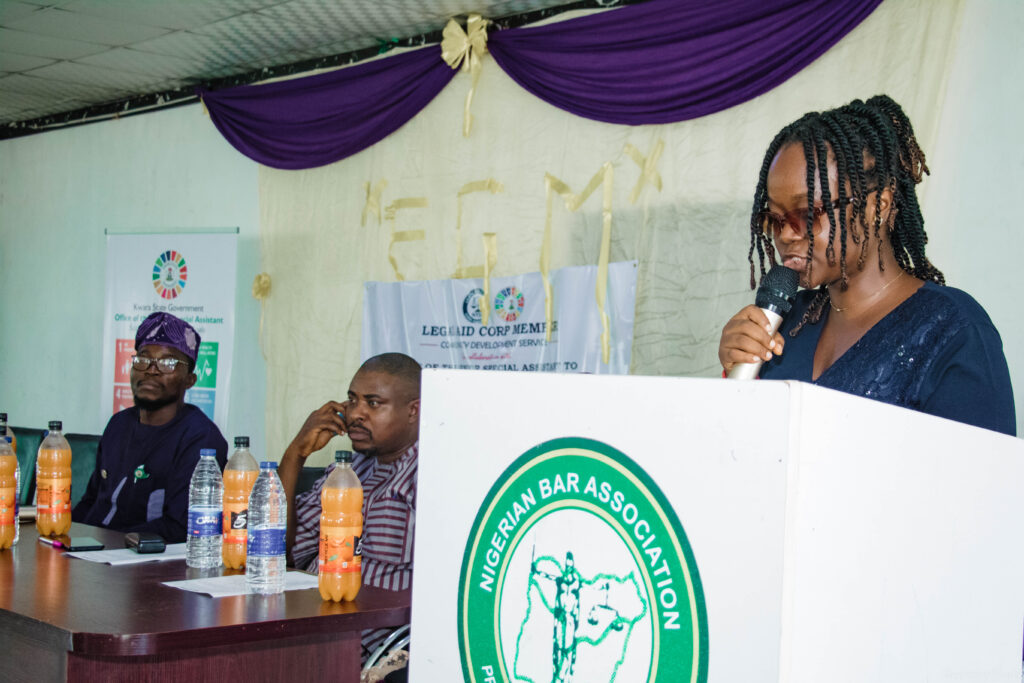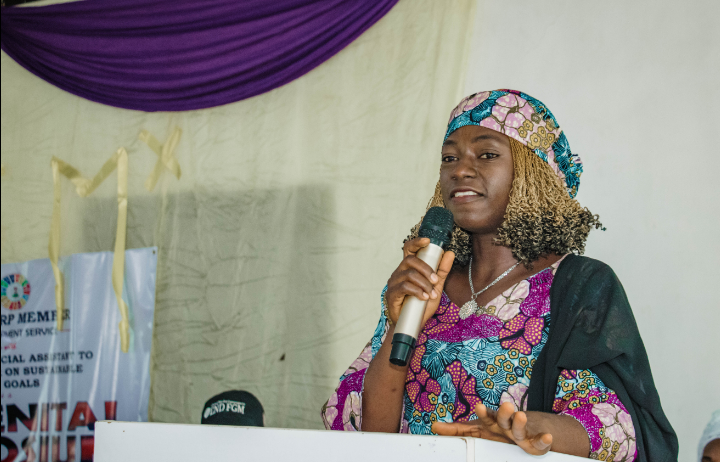
Cross section of discussants
Discussants at a symposium on Female Genital Mutilation (FGM) organized by the Legal Aid Community Development Service (CDS) of the National Youth Service Corps (NYSC) in Ilorin, in collaboration with the office of the Senior Special Assistant to Kwara State Governor on Sustainable Development Goals, have called for a lasting solution to FGM.
They identified the dangers of the practice, which affects the physical, psychological, and mental well-being of the girl child.
The symposium, with the theme “Zero Tolerance for Female Genital Mutilation,” brought together discussants from religious, traditional, medical, legal, and non-governmental groups.
Coordinator Favour Posu, a legal practitioner and Corps member, stressed that Kwara State, with one of the highest FGM prevalence rates, requires proper orientation, especially at the grassroots level.
Posu shared her personal journey, which began three years ago when she was assigned a topic on FGM in university. She expressed shock at the oppressions and practices against women and the girl child. Upon discovering that Kwara State has the highest FGM prevalence rate in Nigeria, she felt compelled to take action.

Favour Posu
“The whole idea started three years ago when I was in the university. I was assigned the topic: ‘Female Genital Mutilation in Nigeria; Problems and Prospects’, from there I got a lot of revelation- shocking ones about the oppressions and practices meted against women and the girl-child. Coming down here to Kwara State [for my Youth Service] the journey continued when I discovered that the state has the highest prevalence of FGM in Nigeria.
“The expectation is to see an empowered girls and women who are psychologically, emotionally empowered and be able to contribute their quota to the state and country as a whole,” she explained.
The Adviser on Girl Child Empowerment to the Kwara State Governor, Mrs. Joana Kolo, emphasized the importance of considering the female’s right to sexual satisfaction in any perspective on FGM.
Sheikh Abdul-wahab Akolade, representative of the circumcisers, suggested that advocacy should focus on government regulation to address quack practitioners, as FGM is deeply rooted in culture and religion.

Ms Joana Kolo
Speaker of the Kwara State Children’s Parliament, Fauziyyah Alaaya, called on stakeholders to promote child rights provisions, especially for the girl child. The medical profession representative and National Orientation Agency noted that FGM has no health benefits and should be discouraged.
“We are gathered here for this program which will sensitize people on the grave consequences of female genital mutilation. It is a highly reprehensible act which subjects vulnerable girls to a lot of unecessary agony. It is a barbaric belief. Stop cutting our girls– they’re not fabrics.”
The Violence Against Persons Prohibition Act (2015) criminalizes FGM and addresses other gender-based violence forms like rape and spousal battery. The symposium aimed to raise awareness and promote a sustainable approach to ending FGM.
By Sola Rotimi

